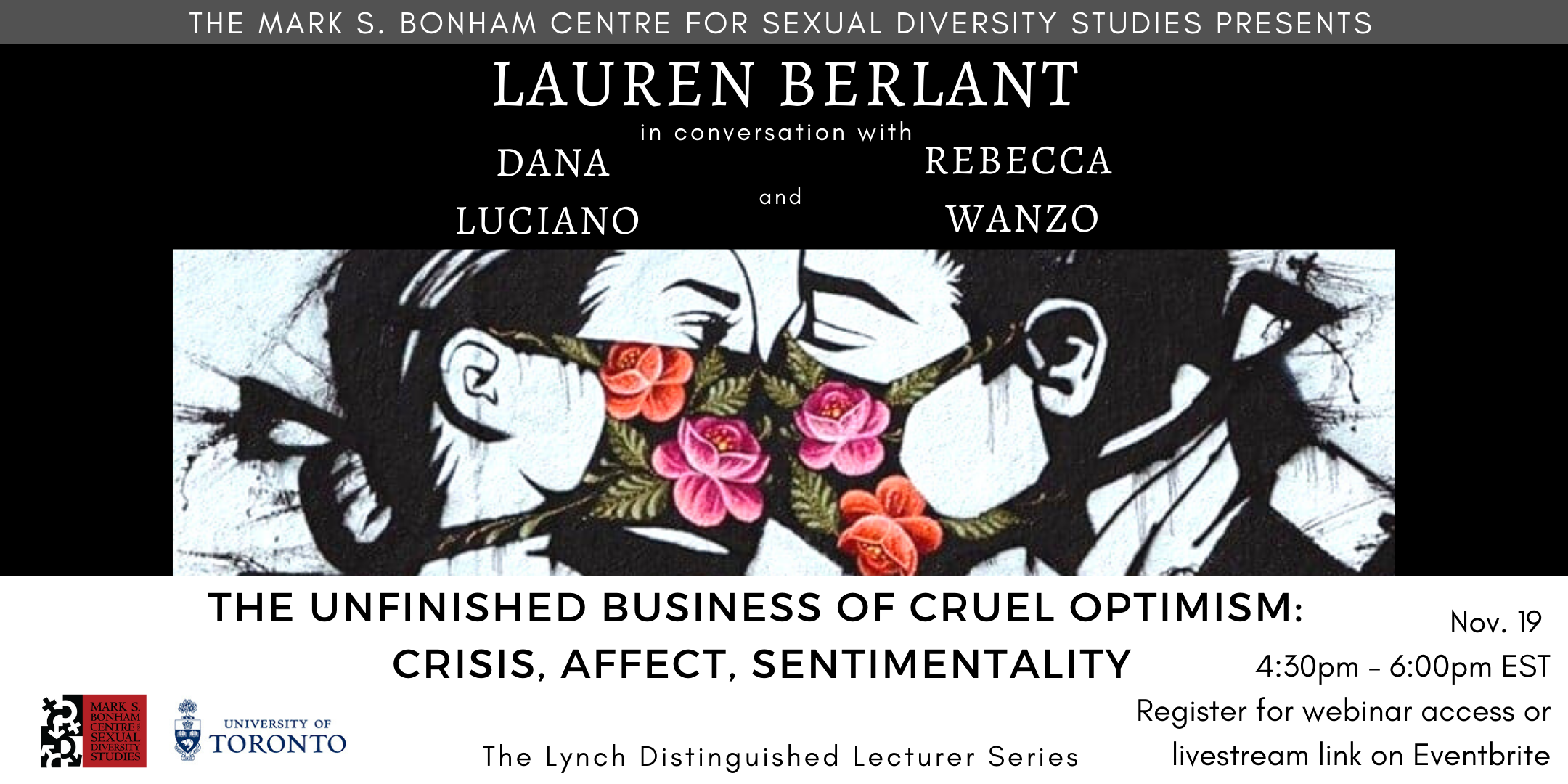

Berlant’s argument, by contrast, focuses on affective practices or stances that bind people to the present for Berlant, “A relation of cruel optimism exists when something you desire is actually an obstacle to your flourishing. Queerness is that thing that lets us feel that this world is not enough, that indeed something is missing”*** (1). Queerness is an ideality Queerness is a longing that propels us onward, beyond romances of the negative and toiling in the present. Muñoz notes that he and Berlant share a “trajectory, that of proposing a sustaining sense of the commons that may exist in the future and the present.” Muñoz’s project is future oriented in Cruising Utopia, he writes, “Queerness is not yet here.

He opens with an account of Lauren Berlant’s Cruel Optimism as a way of revisiting his own argument in his book Cruising Utopia.

Muñoz’s essay is, characteristically, beautiful and incisive. Adorno writes, “Even in the most sublimated work of art there is a hidden ‘it should be otherwise’”* this account, along with Spivak’s questions, “What is it to learn?” and “What would it be to learn otherwise?”** were important guides for the writing I was trying to do.Īfter finishing my last post, which included the word “otherwise,” I searched for “otherwise” in google and came across a 2013 article by José Muñoz, “Living the Wrong Life Otherwise,” in Social Text. The writers who most memorably influenced my thinking on this were Susan Howe, Kamau Brathwaite, Walter Benjamin, Theodor Adorno, and Gayatri Spivak. I was trying to make sense of the fact that things could have been and can be otherwise, a possibility I kept encountering, both directly and indirectly, in the reading I was doing at the time about history, politics, thought, and affect (this thought also emerges in Sedgwick’s essay that I cited in an earlier post).
Lauren berlant cruel optimism and new yorker article how to#
Queer theory empowers novel readings of the world, and worldly readings of the novel, opening up new ways of viewing life and text.About seven years ago, I wrote a series of terrible poems, each of which was trying to work out in my own head and writing how to think about “otherwise” as a process of perceiving and thinking. The critiques can be applied to help deconstruct naturalized epistemic frameworks around topics notably including, language, gender, sexuality, history, the subject, universality, the environment, animals, borders, space, time, norms, ideals, reproduction, utopia, love, the home, the nation, and power. Queer theory embraces a multidisciplinary and diverse set of influences, methodologies, questions, and formats. Textual or discursive construction of knowledge is a key theoretical approach of queer theory with important implications for literature. As feminist epistemology asks whose knowledge matters and who creates knowledge, queer theory asks whether knowledge matters and whether naturalized knowledge is constructed. Queer theory attends to both the rhetorical power of language and the broader structures of knowledge formulation.

Subsequent work engages topics such as temporality, ecology, geography, and diaspora through the analysis of culture and politics, but also literature, film, music, and other media. The activist roots of queer theory in the 1969 Stonewall Riots places drag, trans issues, class, race, violence, gender, and sexuality at the heart of queer theorizing. Beyond reading for queer characters and desires in texts, queer theory is a tool for seeing below the superficial, and supporting unconventional readings that deconstruct normative assumptions. The analytical tools queer theory provides as a mode of close reading and critique makes it a relevant contemporary approach to literary theory. Queer theory describes a network of critiques emerging from a legacy of activism and looking ahead to utopian futures.


 0 kommentar(er)
0 kommentar(er)
